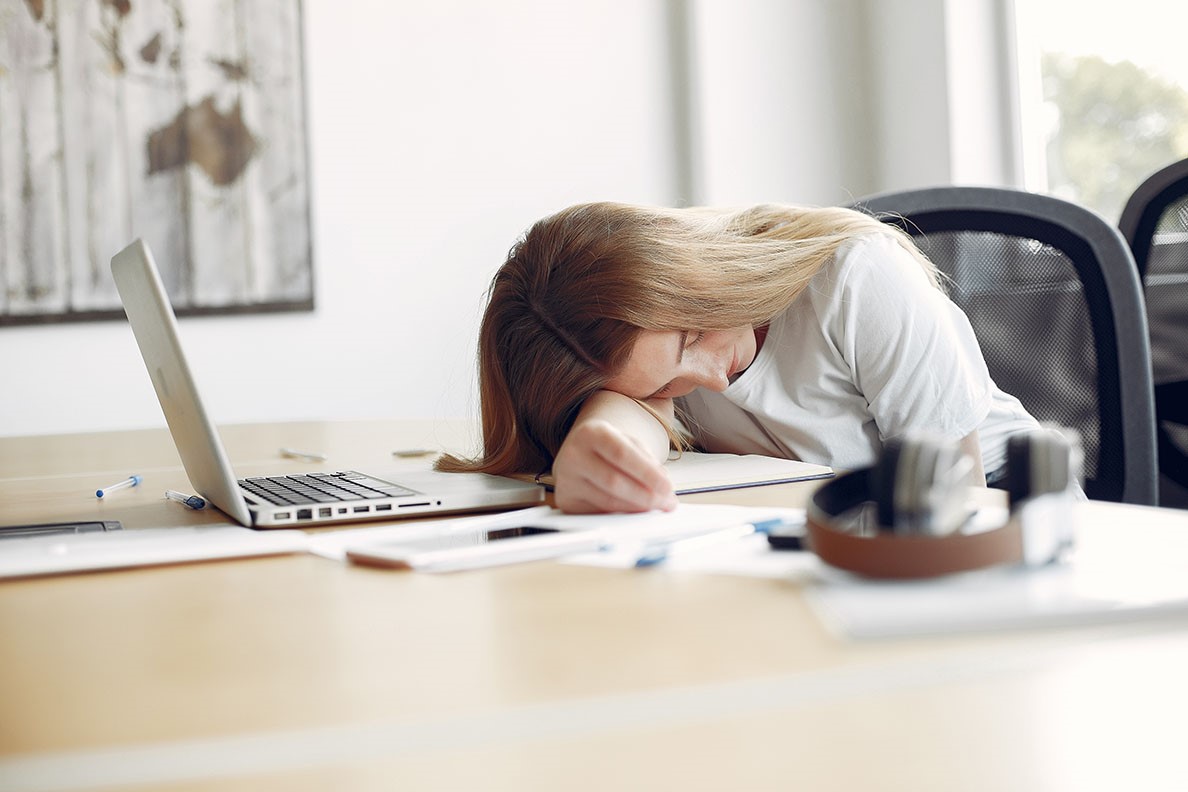
Tiredness and sleep during the day: what can be the causes?
Tiredness and daytime sleepiness. The change of seasons and the arrival of the first cold weather, but also the increased workload that often accompanies autumn: these are all factors that can make us feel more tired during these months
However, when the problem persists for too long and the feeling of fatigue during the day does not resolve itself, it is a good idea to consult a doctor to investigate the cause.
Often the disorder stems from a lack of sleep, a problem that affects many people and that, in the long run, can have a serious impact on individual health, both in the development of diseases, such as those of the cardiovascular system, and in the exacerbation of disorders such as anxiety and depression.
Sleep disorders: insomnia and obstructive sleep apnoea
The two most common sleep disorders that disturb sleep are insomnia and obstructive sleep apnoea.
Insomnia is a disorder that is associated with various neurological, metabolic and cardiac disorders, but also with psychological problems.
Insomnia can be of three different types:
- initial: the most ‘recognisable’, consisting of difficulty falling asleep;
- central: characterised by continuous nocturnal awakenings;
- terminal: which then causes the patient to wake up prematurely with the consequent inability to fall asleep again.
Obstructive apnoea, on the other hand, is a condition that involves episodes of interrupted breathing accompanied by loud snoring and, in general, a decrease in airflow to the lungs during sleep.
Apnoea causes frequent awakenings of the patient who will experience the sensation of lack of air.
Obstructive apnoea has, among its possible consequences, fatigue of the heart muscle due to the decrease of oxygen in the bloodstream: a condition that can lead to the development of cardiovascular diseases.
Stress and sleep: what correlations?
Stress, as we have said, can also strongly influence the quality of sleep.
In addition to the worries and emotional burden of going through a difficult period, perhaps at work or in the family, stress also activates physiological mechanisms that contribute to keeping the brain active.
These are hormonal mechanisms that interfere with the action of melatonin, the hormone that regulates the sleep-wake cycle.
For this reason, in certain cases and on medical advice, supplements containing melatonin may be useful to naturally aid the processes that lead to sleep.
Tips for better sleep
There are a number of tricks that you can put in place on your own to improve your sleep and facilitate the process of falling asleep.
For example, it can be useful to regularise the sleep-wake rhythm by always lying down and waking up at the same time, not eating close to bedtime and avoiding stimulating substances such as coffee, tea or alcohol, preferring warm and relaxing herbal teas such as those based on chamomile, lemon balm or passion flower.
Furthermore, to help sleep, the bedroom should have a temperature of 18-19°, i.e. not cold but not warm, and light screens should be avoided for at least half an hour before bedtime.
Long COVID: tiredness a characteristic symptom
Persistent daytime fatigue is also among the symptoms of long COVID, a clinical syndrome that many COVID-19 patients develop, with certain symptoms persisting more than four weeks after the infection has resolved.
In addition to muscle and joint pain, dyspnoea and coughing, chest pain and other cardiovascular, gastrointestinal and neurological symptoms, several manifestations are similar to those of daytime fatigue, such as persistent fatigue and a widespread feeling of weakness.
Patients suspecting long COVID-related fatigue should therefore refer to their doctor, who will clinically diagnose long COVID syndrome and, if deemed necessary, indicate which investigations to perform.
Other conditions, e.g. diabetes, hypertension, thyroid disorders, vitamin deficiencies (such as vitamin B12), can also be linked to daytime fatigue.
It is therefore advisable to seek medical advice if the symptom persists.
Read Also:
Emergency Live Even More…Live: Download The New Free App Of Your Newspaper For IOS And Android
Obstructive Sleep Apnoea: Symptoms And Treatment For Obstructive Sleep Apnoea
Obstructive Sleep Apnoea: What It Is And How To Treat It
Grinding Your Teeth While You Sleep: Symptoms And Remedies For Bruxism
Long Covid And Insomnia: ‘Sleep Disturbances And Fatigue After Infection’
Sleep Disorders: The Signs Not To Be Underestimated
Sleepwalking: What It Is, What Symptoms It Has And How To Treat It
What Are The Causes Of Sleepwalking?
Catatonia: Meaning, Definition, Causes, Synonyms And Cures
Difference Between Catatonia, Catalepsy And Cataplexy
Cataplexy: Cause, Meaning, Sleep, Cure And Etymology
Pediatric Obstructive Sleep Apnea


